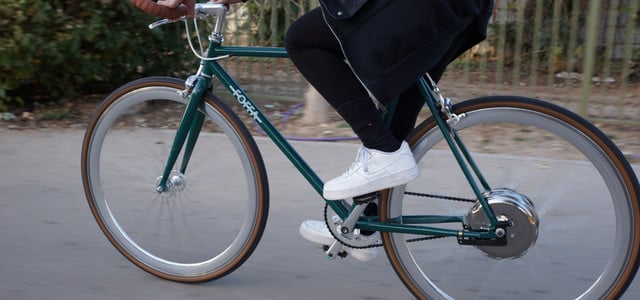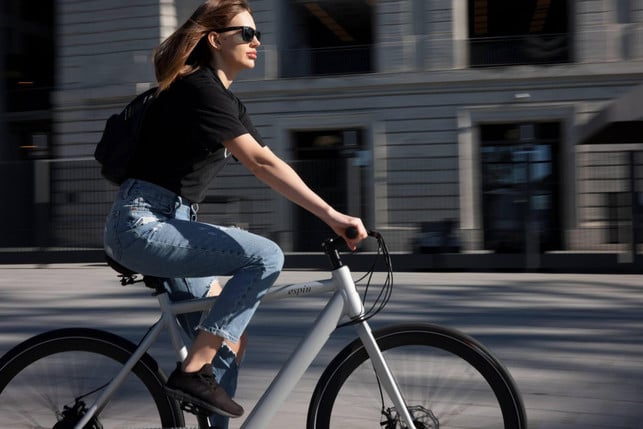
Is e-bike driving actually healthy? A German study has investigated how electrically supported cycling affects physical fitness and what differences in the conventional bike there are.
E-bikes are not only becoming increasingly popular in Germany: According to a survey from 2024, around everyone in this country now has an electrically operated bicycle, i.e. almost 25 percent. Four years earlier it was only around 15 percent.
The advantages of an e-bike seem to be obvious: it enables mobility in city traffic, is cheaper than a car and more environmentally friendly. Due to the electric engine, driving is less exhausting than with a conventional bike operated with muscle power.
But is that an advantage at all? Or is it at the expense of physical fitness? German researchers: Inside, a study published.
E-bike driving and physical activity

In 2022, a study of e-bike driving as sporting activities was published in the BMJ Open Sport & Exercise Magazine, a sports medical e-journal. In addition to the effects of e-bike driving on physical fitness, the interest of the e-bike driving also the risk of accidents from e-bike drivers: inside.
As the author emphasize: In the study of e-bike use, the focus is on real everyday conditions, because so far the research situation has not given up much. Among other things, they excluded professional cyclists: on the inside of participation.
Although there have already been data that suggests a fundamental positive effect on health, there was also little precise about the physical intensity of the e-bike driving before the study was carried out. The focus of the research is therefore the question of how to promote movement the electric bike in everyday use – and whether it differs from conventional cycling with regard to the fitness factor.
Study: e-bike and bike in the fitness comparison
These are the facts of the study at a glance:
-
Participants: Inside: In total, the study took 1,250 e-bike drivers: inside and 629 conventional cyclists: inside.
-
Period: Over a period of four weeks, the researchers documented the physical activity of the test subjects using questionnaires and portable electronic devices (activity trackers).
-
Key question: The key question was whether the participants were able to achieve the limit values for moderate to intensive physical activity recommended by the WHO (moderate to vigorous physical activity, or MVPA for short).
-
Measurements: The duration of sporting activity and the heart rate were measured for this. The WHO recommends moderate or 75 minutes of intensive activity (or a combination of both) at least 150 minutes. When measuring the heart rate, the research team was based on the American College of Sports Medicine, which sets a heart rate of 64 to 76 percent of the maximum frequency for moderate activity. With over 77 percent of the maximum frequency, one speaks of intensive activity.
The result: The e-bike drivers: On average, an average MVPA weekly reached the inside than the cyclists: inside without electrical support. The bottom line was that the conventional cyclist was pure travel time: the inside of the e-bike driver: inside. The latter generally drove less often, for shorter duration and with less intensity, according to the study.
By the way: As far as the risk of bicycle accident is concerned, there are no significant differences between e-bike and conventional bicycle. In any case, this resulted in the research of the researchers in the four -week study period.
Is e-bike driving too comfortable?

Due to the data collected, the research team comes to the conclusion that conventional cyclists can count on more health advantages than e-bike drivers: inside.
Also interesting: This is how cycling influences mental health
However, this does not automatically mean that e-bike driving has no positive effects on fitness and health goals. The author: Inside, the e-bike primarily emphasizes as a sensible movement option for people who, for example, are limited in their physical possibilities due to illness or age. You could allow the electric bicycle to ride a bike regularly and stay mobile. Further research in this area could therefore be worthwhile.
Also with regard to the environment, the study suggests that more convenience does not always have to be bad: the evaluation of the questionnaires showed that many e-bike drivers: inside, mainly sees their bike as a way to facilitate driving effort. Therefore, the willingness for them is often greater than with normal cyclists: inside, in everyday life on the bike instead of using the car.
Read more on utopia.de:
- Cheap alternative to test winners: Here you get high quality e-bikes at a small price
- E-bike repair: costs, effort, do it yourself?
- With the e-bike on the bike path? Legal around the e-bike
** marked with ** or orange underlined Links to sources of supply are partially partner links: If you buy here, you will actively support Techzle\.com, because we will then receive a small part of the sales proceeds. More information.